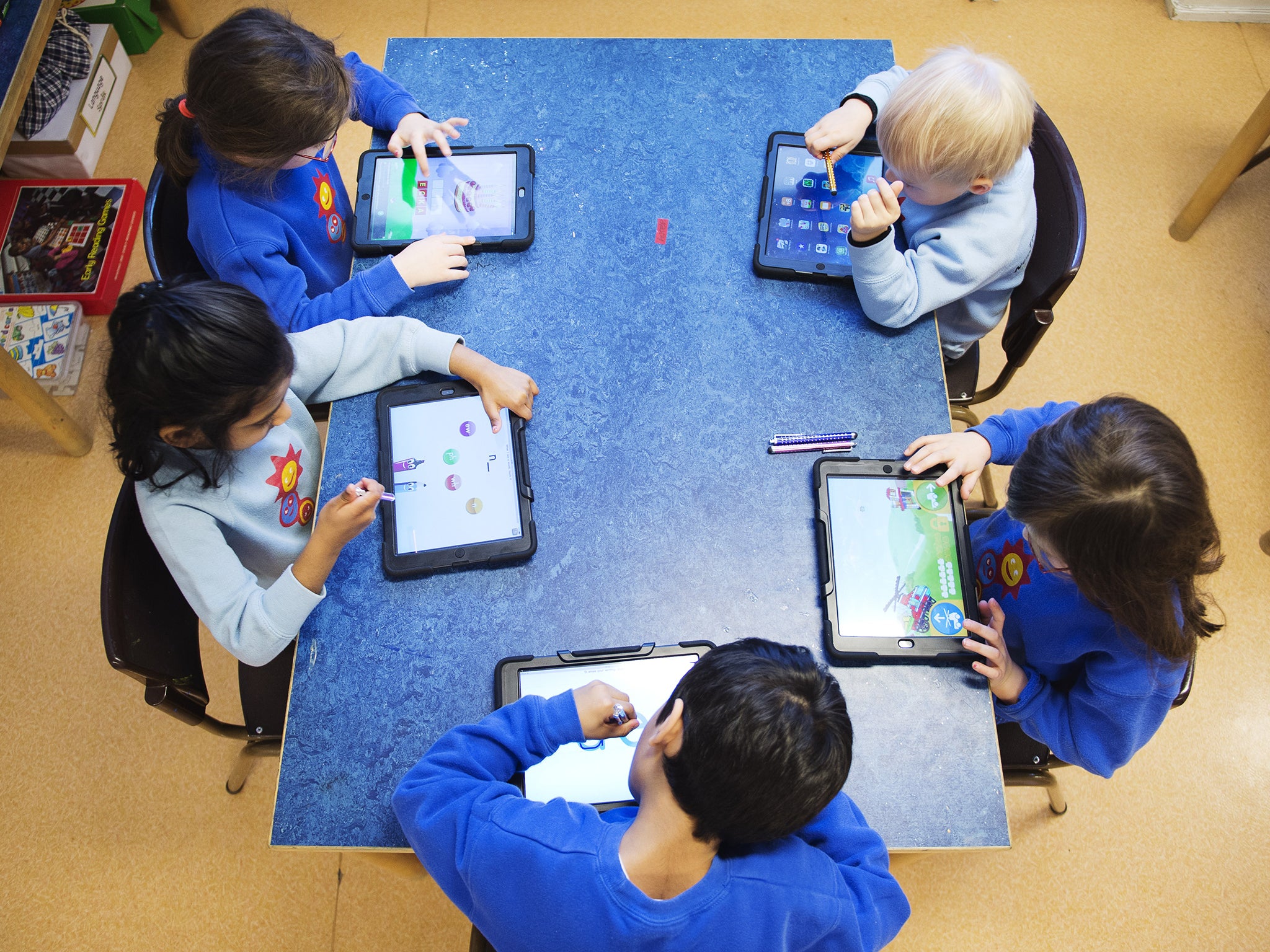As a parent, I’m concerned about my kids’ screen time – but am I a hypocrite?
Convincing kids to limit their screen time is largely a matter of willpower and of finding attractive alternatives – not just using an app so that a tablet automatically turns itself off after a certain period of time


Your support helps us to tell the story
From reproductive rights to climate change to Big Tech, The Independent is on the ground when the story is developing. Whether it's investigating the financials of Elon Musk's pro-Trump PAC or producing our latest documentary, 'The A Word', which shines a light on the American women fighting for reproductive rights, we know how important it is to parse out the facts from the messaging.
At such a critical moment in US history, we need reporters on the ground. Your donation allows us to keep sending journalists to speak to both sides of the story.
The Independent is trusted by Americans across the entire political spectrum. And unlike many other quality news outlets, we choose not to lock Americans out of our reporting and analysis with paywalls. We believe quality journalism should be available to everyone, paid for by those who can afford it.
Your support makes all the difference.I am not, for the most part, a technophobe. True, I’m not at all convinced that technology has made our lives better in every respect (is anyone?) – but the balance is in its favour, across a whole range of measures in a multitude of sectors. And for the most part I know what I’m doing when it comes to electronic devices, though I’m always anxious about the possibility of breaking them (even if I rarely do).
Nevertheless, I’m painfully conscious that I don’t have the intuitive grasp of everyday technology that is evident among those under the age of 30 who did not know a time before mobile phones. In fact, forget mobiles, before I went to university in 1997 I don’t think I knew what emails were.
My eldest child, at nine, already has a kind of immediate instinct for electrical gadgets that I will probably never have. There is no fear of trial and error, and a keenness to understand the mechanics that lie behind computer games and other screen-based tools. She can put together a powerpoint presentation that puts my efforts to shame.
All this makes the challenge of restraining my children’s screen time all the trickier. Of course there are plenty of apps to help. My wife and I can add parental controls to the TV, or to the tablet that our daughter was given (to her glee) by a godmother; but if and when she works out our passwords, she could probably change the limits we’d set and we wouldn’t realise for weeks.
No doubt things will become even more complicated when mobile phones ,and social media, enter the frame.
Still, the use of tech to prevent the overuse of tech is only a part of the picture. Convincing children to limit their screen time is largely a matter of willpower and of finding attractive alternatives – not just using an app so that a tablet automatically turns itself off after a certain period of time, or at a particular point in the evening.
That isn’t necessarily easy either, of course. If my kids are anything to go by – and they seem fairly typical examples – telling them that the telly’s being turned off because they have watched enough is likely to provoke anything from a cross stare to a full-on tantrum, especially from the three-year-old. Threats of violence from him are not unknown.
But without wishing to get all Victorian about it, parenting is sometimes about making basic decisions about your offspring’s daily lives. And the latest message from the Royal College of Paediatrics about the impact of too much (or at least the wrong sort of) screen time on our children’s health should remind all parents of the need to be firm.
There is a fallacious argument (made not least by children themselves) that proper participation in the modern world is only possible with almost unlimited access to screens of one sort or another. It’s nonsense of course, but the kind of nonsense that becomes self-fulfilling if everyone believes it.
And the reality is that many parents (including me at times, I’m sure) set the worst kind of example by perpetually reaching for their phone to check the latest work email, football score or social media lols.
Indeed, let’s not focus on the children only. We’d all benefit – physically and psychologically – from a bit less time in front of a screen. If we can tell the kids it’s time to stop, why on earth can’t we say the same to ourselves?
Join our commenting forum
Join thought-provoking conversations, follow other Independent readers and see their replies
Comments